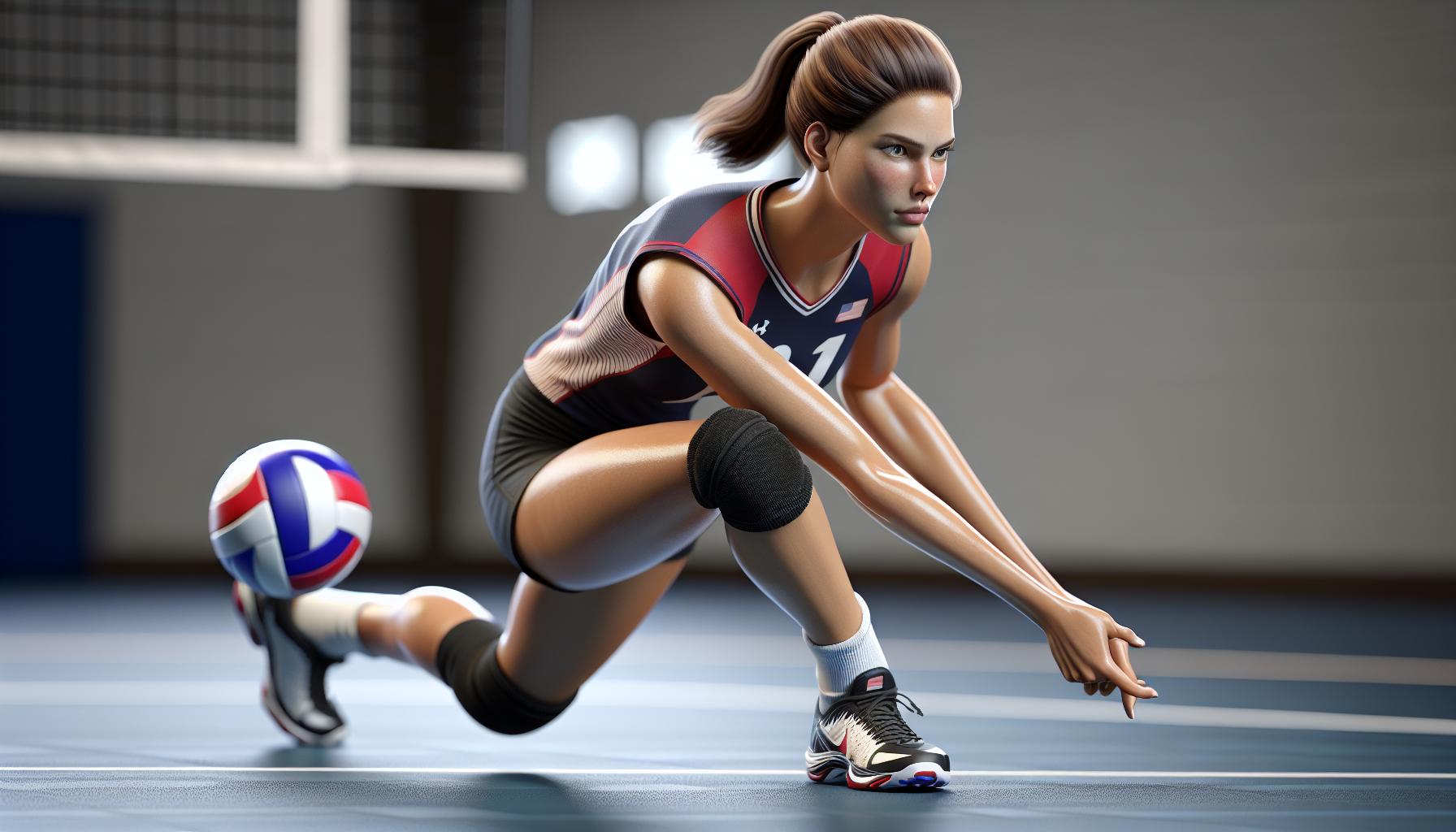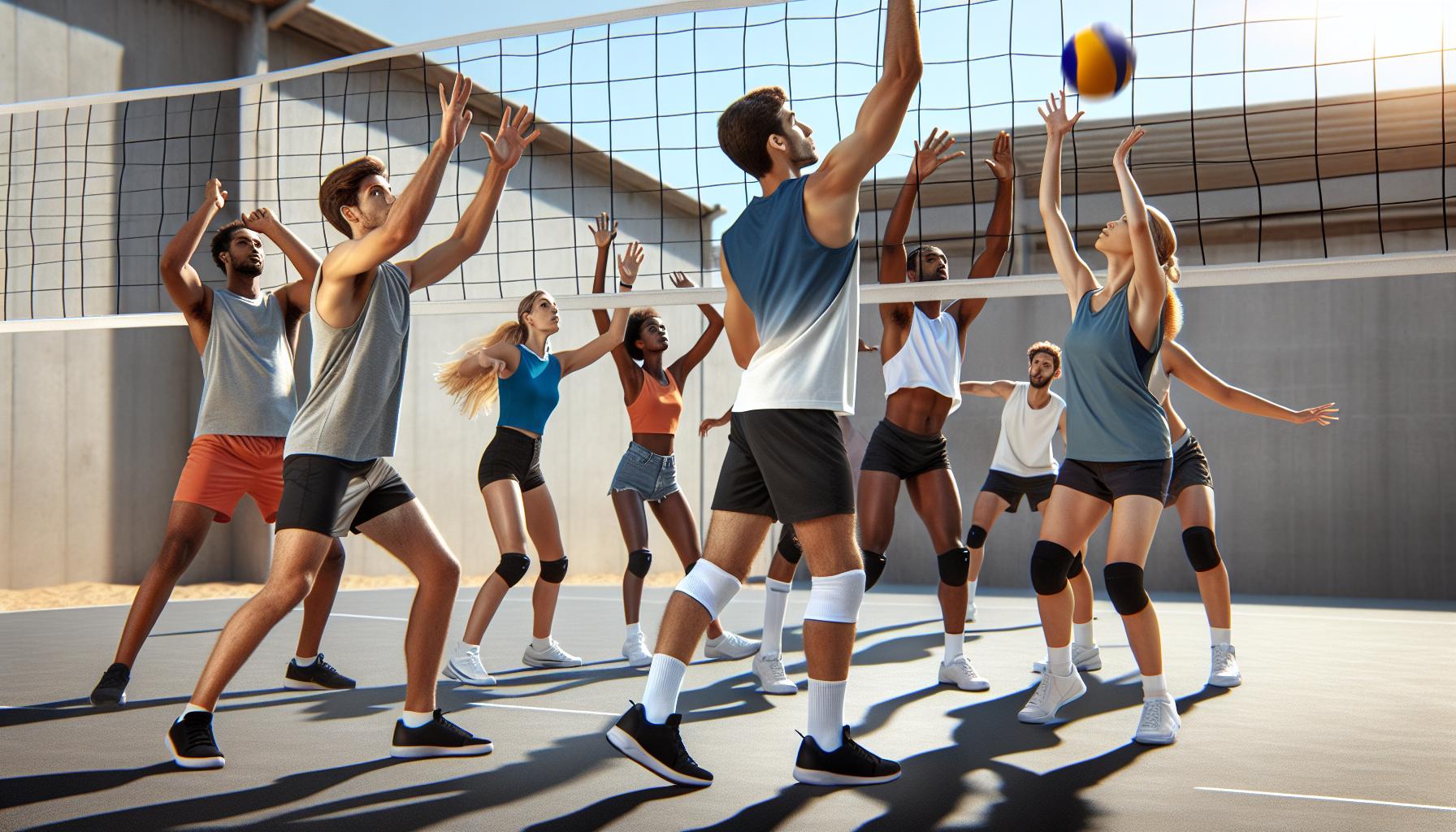Volleyball is more than just a game; it’s a dynamic blend of skill, strategy, and athleticism. As the sport continues to gain popularity around the world, understanding the key components of sports performance in volleyball becomes essential for players and coaches alike. From agility and strength to mental resilience, every aspect plays a crucial role in achieving peak performance on the court.
Athletes strive to enhance their abilities through targeted training and conditioning. By focusing on sport-specific skills and physical fitness, they can maximize their potential and elevate their game. This article explores the various factors that contribute to sports performance in volleyball, providing insights that can help players reach new heights in their athletic journey.
Key Takeaways
- Key Components of Performance: Success in volleyball hinges on several physical components, including agility, strength, endurance, and technical skills, which collectively enhance game effectiveness.
- Mental Resilience: Athletes must develop mental toughness through concentration techniques, visualization, stress management, and goal setting to perform well under pressure.
- Impact of Nutrition: Proper nutrition and hydration are vital for sustaining energy levels and overall health. A well-balanced diet supports athletic performance and recovery.
- Importance of Recovery: Effective recovery strategies, such as quality sleep, active recovery, and therapeutic techniques, are essential to optimize performance and reduce injury risks.
- Tactical Awareness: Enhancing game strategy through skills training and situational awareness allows athletes to adapt quickly during matches and exploit opponents’ weaknesses.
Sports Performance Volleyball
Sports performance volleyball focuses on optimizing an athlete’s physical and mental capabilities to excel in the game. It incorporates elements such as biomechanics, nutrition, and psychology, all contributing to improved outcomes on the court.
Key Components:
- Agility: Quick directional changes are essential for success in volleyball. Training drills that enhance footwork and reaction times significantly boost performance.
- Strength: A strong core and powerful legs drive effective jumps and spikes. Resistance training tailored to volleyball-specific movements increases strength and power.
- Endurance: Maintaining energy levels throughout the match impacts game performance. Aerobic conditioning, interval training, and sport-specific exercises help build stamina.
- Technical Skills: Mastery over skills such as serving, passing, and attacking plays a crucial role. Focused drills and repetitious practice enhance these fundamental techniques.
Mental aspects also play a pivotal role in sports performance volleyball:
- Focus: Strong concentration ensures better decision-making during matches. Techniques like visualization and mindfulness training support sustained attention.
- Resilience: The ability to bounce back from setbacks is vital. Mental conditioning strategies assist athletes in remaining composed under pressure.
By integrating these components, players can refine their skills, improve overall performance, and enjoy better outcomes in competition.
Key Factors Influencing Performance

Several crucial elements play a significant role in enhancing volleyball performance. Both physical conditioning and mental resilience contribute to an athlete’s overall capabilities on the court.
Physical Conditioning
Physical conditioning directly impacts athletic performance in volleyball. Key components include agility, strength, endurance, and flexibility.
- Agility: Agility drills focus on rapid direction changes to help players navigate the court efficiently. Examples include ladder drills and cone exercises.
- Strength: Strength training develops core and leg muscles essential for powerful jumps and spikes. Weightlifting and resistance exercises build these muscle groups effectively.
- Endurance: Endurance training ensures sustained energy levels during matches. Activities such as running or circuit training help athletes maintain peak performance throughout extended play.
- Flexibility: Flexibility workouts, including stretching and yoga, enhance range of motion, reducing injury risk and improving movement efficiency.
Incorporating a well-rounded conditioning program enables athletes to perform at higher levels consistently.
Mental Resilience
Mental resilience significantly influences athletes’ performance under pressure. Focusing on mental training fosters a competitive edge on the court.
- Concentration: Techniques such as mindfulness and meditation enhance focus during matches. Athletes can practice these methods consistently to improve mental clarity.
- Visualization: Visualization strategies involve mentally rehearsing plays and skills to boost confidence and preparedness. Athletes can vividly envision successful executions in various game scenarios.
- Stress Management: Effective stress management techniques, including breathing exercises, help players maintain composure during high-pressure situations. Regular practice of these methods contributes to improved emotional control.
- Goal Setting: Establishing clear, achievable goals motivates athletes and reinforces a growth mindset. SMART (Specific, Measurable, Achievable, Relevant, Time-bound) goal setting provides a structured approach to skill development.
Building mental resilience equips athletes to withstand challenges, enhancing their likelihood of success in competitive environments.
Techniques To Improve Performance

Techniques focusing on skills training and tactical awareness can significantly enhance volleyball performance. These elements contribute to overall effectiveness and gameplay mastery.
Skills Training
Skills training encompasses various drills aimed at honing specific techniques. Practicing serves improves accuracy and power, while consistent passing drills enhance ball control. Performing footwork exercises sharpens agility, allowing quicker reactions on the court. Engaging in spiking practices helps refine jump techniques and timing. Incorporating game-like scenarios during training provides valuable experience in decision-making and skill application under pressure. Regular assessment of skill improvements establishes clear benchmarks for growth.
Tactical Awareness
Tactical awareness involves understanding game dynamics and strategic play. Analyzing opponent tendencies enables players to anticipate movements and exploit weaknesses. Encouraging communication among teammates fosters effective strategies during matches. Evaluating match footage enhances awareness of positioning and decision-making. Practicing different formations and plays equips players with versatility in various situations. Developing situational awareness significantly improves players’ ability to adapt strategies in real-time, thereby increasing competitive edge.
Importance Of Nutrition And Recovery

Nutrition and recovery play crucial roles in optimizing sports performance in volleyball. Proper nutrition provides the necessary energy and nutrients for training and match-day performance. Macronutrients, including carbohydrates, proteins, and fats, require careful balancing. Carbohydrates serve as the primary energy source, while proteins support muscle repair and growth. Healthy fats contribute to overall energy balance and hormone production. Athletes must focus on whole foods, such as lean proteins, whole grains, fruits, and vegetables. Consuming a well-rounded diet helps maintain optimal body composition and energy levels.
Hydration remains essential for performance maintenance. Dehydration can impair strength, endurance, and cognitive function. Athletes should drink water regularly throughout the day, particularly before, during, and after exercise. Replenishing electrolytes may become necessary after intense training sessions or matches to help regulate fluid balance and muscle function.
Recovery techniques also significantly influence performance. Active recovery methods, such as light activities, stretching, and yoga, can promote blood flow and reduce muscle soreness. Moreover, adequate sleep serves as a fundamental recovery component, helping the body repair tissues and restore energy levels. Athletes should aim for 7 to 9 hours of quality sleep each night to support peak performance.
Incorporating targeted recovery strategies enhances overall resilience. Techniques such as foam rolling, massage therapy, and contrast baths facilitate muscle recovery and reduce tension. Utilizing these methods post-training or competition ensures the body recharges efficiently for future performance demands. Prioritizing nutrition and recovery maximizes athletic potential, leading to improved performance on the volleyball court.
Maximizing Sports Performance in Volleyball
Maximizing sports performance in volleyball requires a holistic approach that encompasses physical conditioning and mental resilience. Athletes must prioritize agility strength endurance and technical skills while also honing their mental game through techniques like mindfulness and visualization.
Integrating targeted training with a strong focus on nutrition and recovery can significantly elevate performance levels. By understanding the multifaceted nature of the sport players can refine their skills and adapt their strategies to excel in competition.
Ultimately it’s the dedication to improvement in all these areas that leads to success on the court.